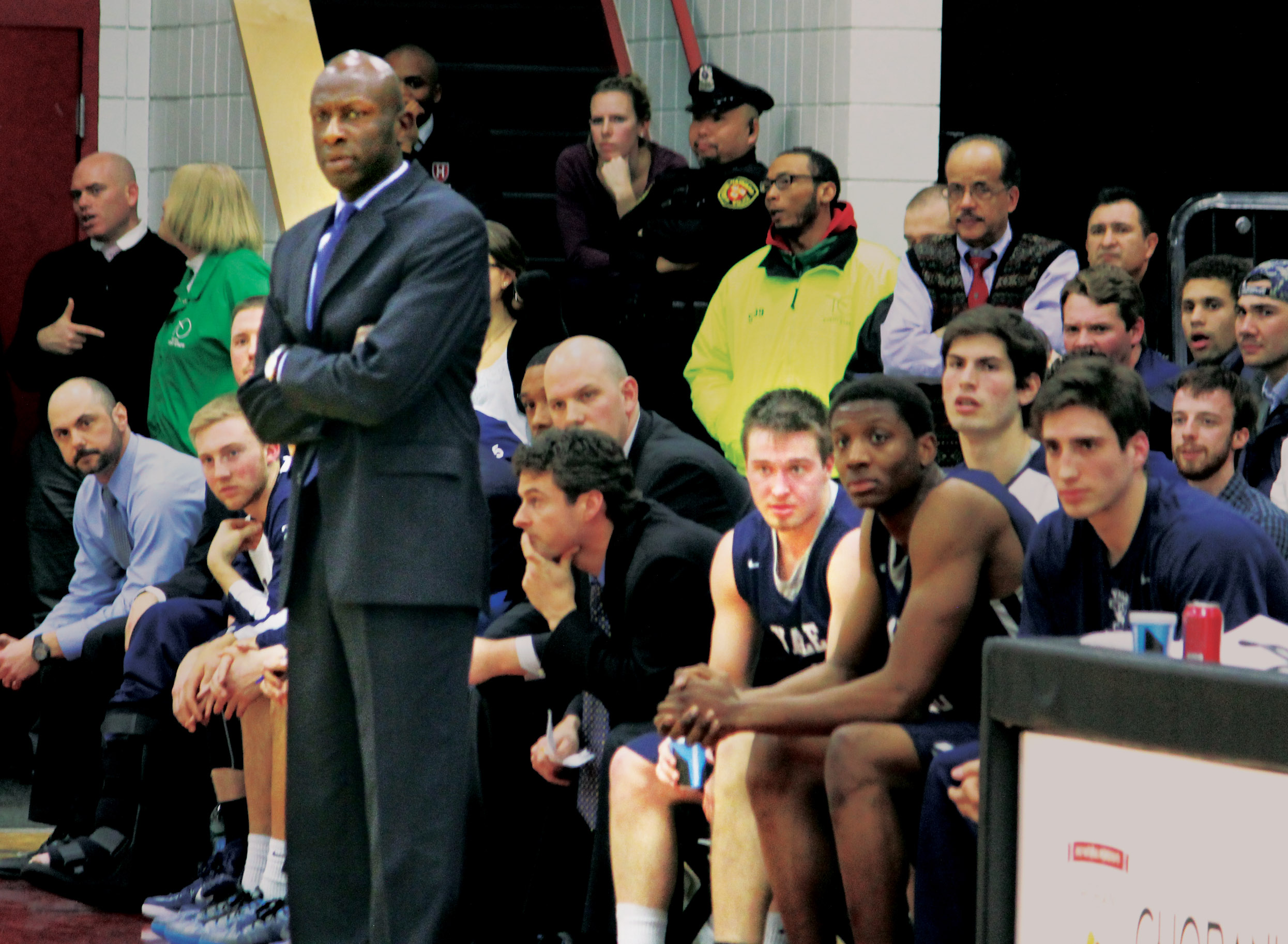
Yale men’s basketball head coach James Jones served as the adviser for former captain Jack Montague during his hearing process before the University-Wide Committee on Sexual Misconduct, according to sources with knowledge of the case.
Montague allegedly violated University sexual misconduct policy in October 2014 in an incident of nonconsensual sexual intercourse. A complaint was filed with one of Yale’s Title IX coordinators a year later, and Montague was expelled on Feb. 10, 2016, after undergoing the UWC process for a formal complaint.
According to UWC procedures, both the complainant and the respondent in a case of alleged sexual misconduct may be accompanied by an adviser of his or her choice at any stage of the process. While residential college masters or deans are a common choice, Montague chose “the person he was closest to” on campus to advise him, one source said. Jones did not respond to multiple requests for comment.
The role of the adviser is to offer “personal and moral support” and help the complainant or respondent prepare for meetings, according to UWC procedures. Advisers may not speak for their advisees during interviews or hearings and may not submit documents on the individual’s behalf at any point in the process.
One source questioned Montague’s decision to name Jones as his adviser, noting that deans and masters are generally more knowledgeable about UWC procedures than other members of the Yale community.
Because advisers in UWC cases serve largely supportive roles, residential college deans in particular are among the most common choices.
“I was told by the Title IX coordinator that I could choose anyone that I wanted as my adviser. The coordinator also told me that people often chose their dean or someone from [the Sexual Harassment and Assault Response & Education Center] to advise them,” said a student who went through both formal and informal UWC proceedings as a complainant and wished to remain anonymous due to the sensitivity of the issue.
But residential college deans may not always be the best option, according to a student who was a respondent to a formal UWC complaint. The student was informed that the “usual protocol” was for a college dean to serve as an adviser and complied without hearing about additional options.
The student said the adviser did not serve a helpful role in that particular case, adding that the adviser “seemed to view the claim more from the complainant’s point of view than mine.”
“Most of my communications with my adviser were limited to the procedural and scheduling aspects of the process,” said the student, who also wished to remain anonymous. “I think my adviser tried to give me emotional support, mainly by giving me hugs. But what I really needed was actual advice on defending myself against an accusation that I had committed sexual misconduct under circumstances which I could not recall. After my hearing and a subsequent telephone call, my adviser completely abandoned me to face the response and appeal process alone.”
University spokesman Tom Conroy said in a March 18 statement not specific to the Montague case that UWC Secretary Aley Menon recommends that complainants, respondents and their advisers meet with her so she can provide a “detailed explanation of the process.” The parties agree to do so “in almost every case,” the statement read.
The UWC procedures specify that, should a student wish to use an external lawyer as an adviser, the student must inform the UWC secretary at least four days in advance of any meeting the adviser will attend.
Max Stern, Montague’s current attorney, did not represent Montague during his Yale hearing, according to Karen Schwartzman of Polaris Public Relations, the firm working with Montague and his attorney. Montague did not retain Stern until early March as the former captain was preparing for a lawsuit against the University, Schwartzman said.
Margaret Clark, master of Trumbull College — of which Montague was a member — declined to comment. Trumbull College Dean Jasmina Besirevic-Regan did not respond to multiple requests for comment.
In another formal UWC hearing process — one for which the News gained access to the documents — the complainant and respondent were in the same residential college. In that case, the respondent was told his dean was “not eligible to be [the student’s] adviser,” but that the dean of another residential college had “indicated his willingness” to serve instead.
The SHARE Center provides a 24-hour hotline, supplies individual services and counseling, facilitates support groups and offers other services and workshops for individuals affected by or close to sexual assault.







